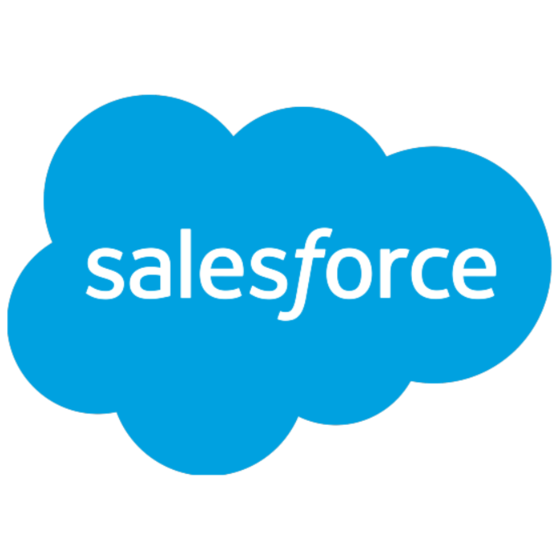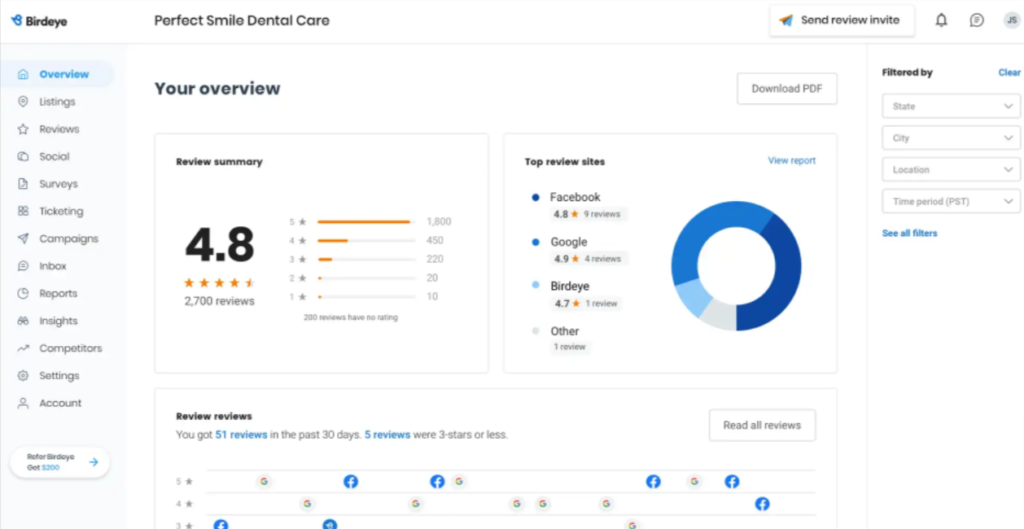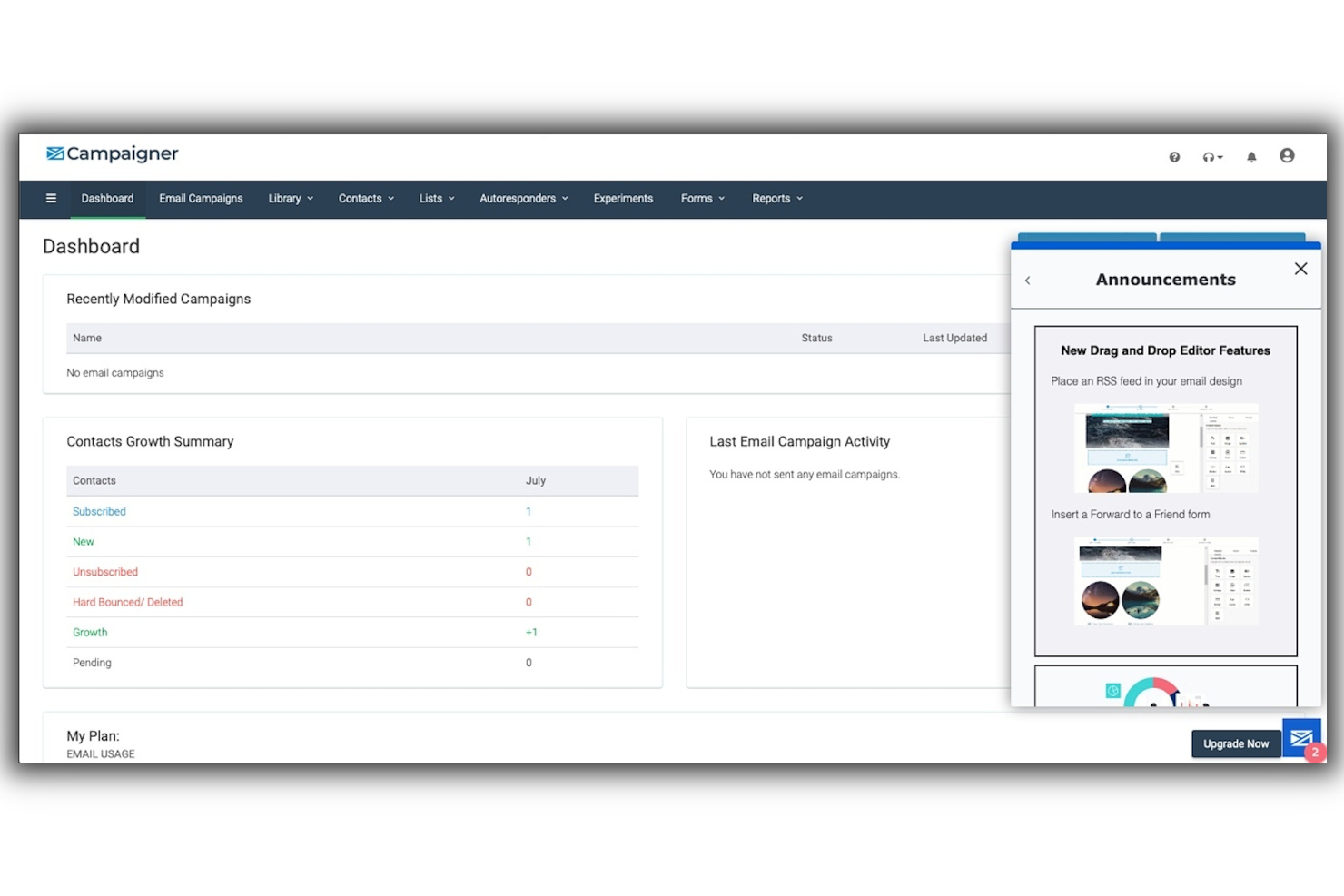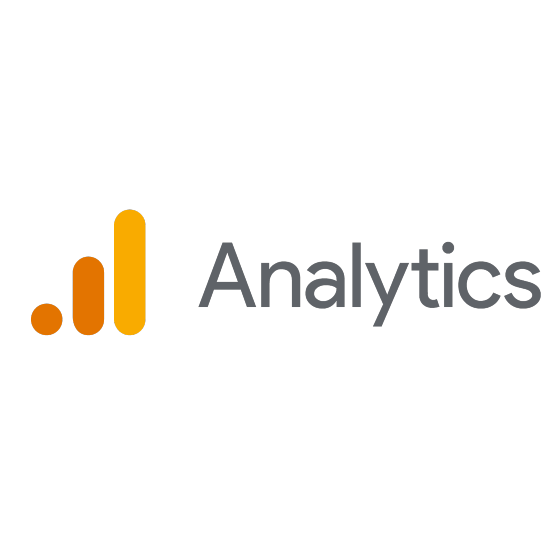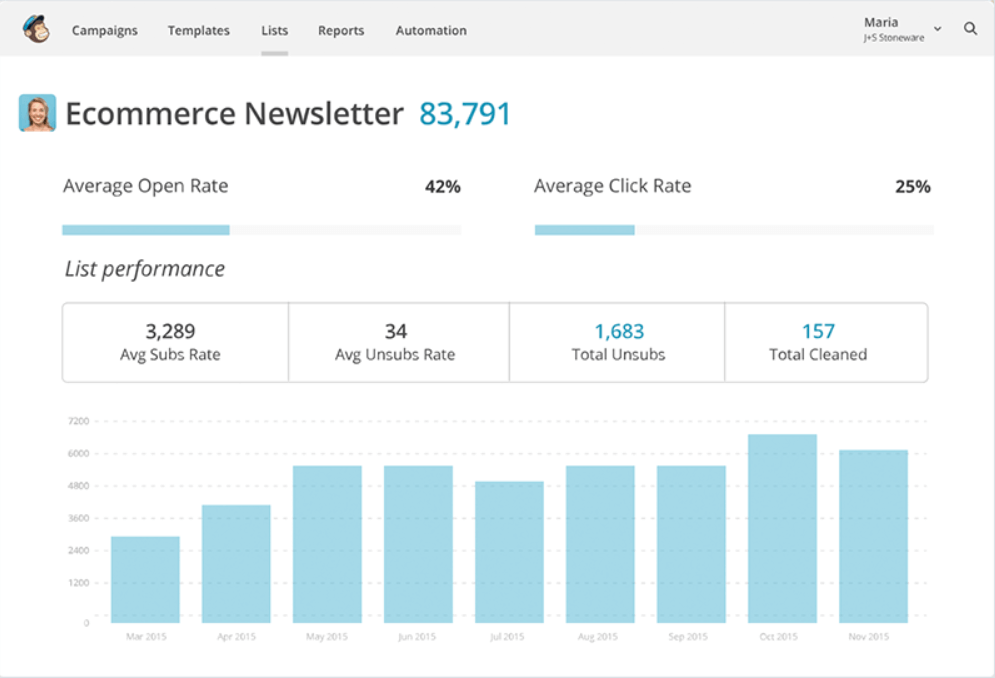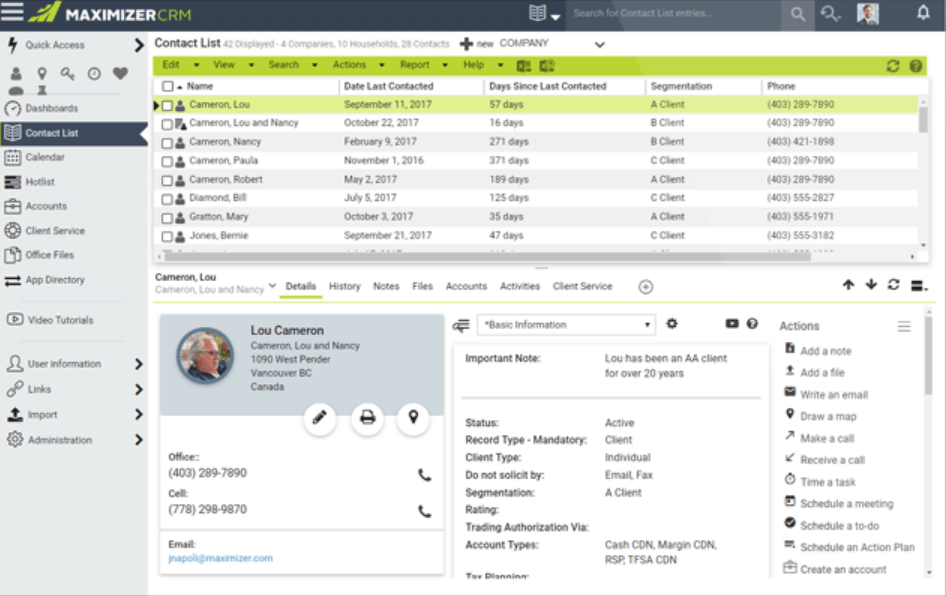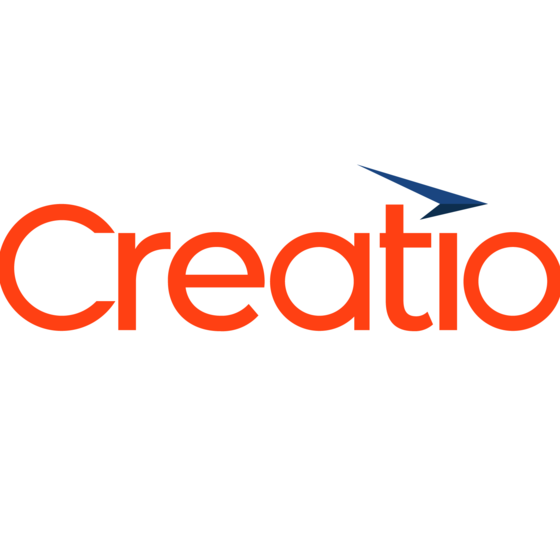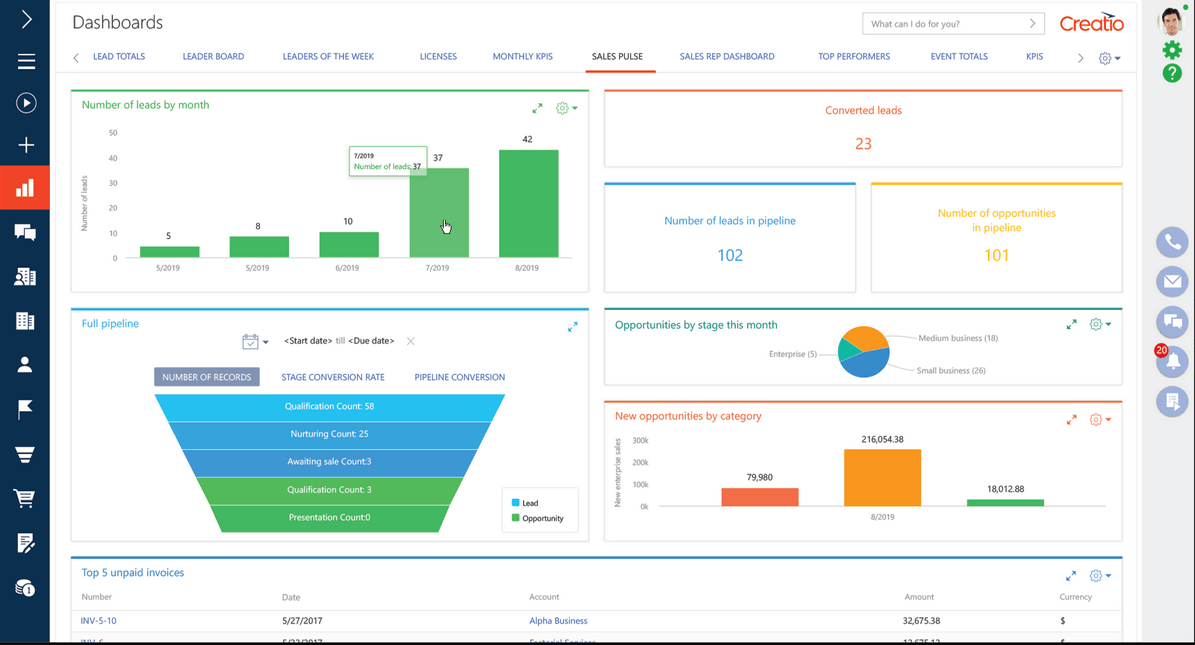10 Best Marketing Software Shortlist
Here’s my pick of the very best marketing software along with what I found each does best:
Trying to decide which is the best marketing software for your current workflows when you've got a million things (ok, maybe not a million, but you get my point) on your plate can be challenging. And between all that, you still need to manage up and down.
I know the struggle all too well. I've seen firsthand how the right tool can improve your marketing processes, automate repetitive tasks, and provide career-changing insights - but I also know how frustrating it can be to invest in a software that doesn't live up to the hype.
Using my software buying experience and our fancy tool review system, I've put together our top picks for marketing software that are the real deal.
You Can Trust Our Marketing Software Reviews
We’ve been testing and reviewing marketing software since 2022. As marketers ourselves, we know how critical, and difficult it is to make the right decision when selecting software.
We invest in deep research to help our audience make better software purchasing decisions. We’ve tested more than 2,000 tools for different marketing use cases and written over 1,000 comprehensive software reviews. Learn how we stay transparent & our review methodology.
The 10 Best Marketing Software Selection Summary
| Tools | Price | |
|---|---|---|
| Salesforce Pardot | From $1250/month | Website |
| Birdeye | From $299/month | Website |
| Campaigner | From $59/month | Website |
| HubSpot Marketing | From $800/month + $45/month for additional seats | Website |
| Google Analytics | From $50,000/year (billed annually) + free version available | Website |
| Mailchimp | From $13/month | Website |
| Marketo | From $895/month | Website |
| Maximizer | From $65/month (billed annually) | Website |
| Freshworks | From $19/user/month | Website |
| CRM Creatio | From $25/user/month | Website |

Compare Software Specs Side by Side
Use our comparison chart to review and evaluate software specs side-by-side.
Compare SoftwareHow to Choose Marketing Software
With so many different marketing software solutions available, it can be challenging to make decisions on what marketing software is going to be the best fit for your needs.
As you're shortlisting, trialing, and selecting marketing software, consider:
- What you want to use it to do - Start by identifying the marketing software feature gap you're trying to fill to clarify the features and functionality the marketing software needs to provide.
- Who will need to use it - To evaluate cost and requirements, consider who'll be using the software and how many licenses you'll need. You'll need to evaluate if it'll just be the marketing professionals, or the whole organization that will require access. When that's clear, it's worth considering if you're prioritizing ease of use for all, or advanced functionality for your marketing software power users.
- What other tools it needs to work with - Clarify what tools you're replacing, what tools are staying, and the tools you'll need to integrate with, such as accounting, CRM or HR software. You'll need to decide if the tools will need to integrate together, or alternatively, if you can replace multiple tools with one consolidated marketing software.
- What outcomes are important - Consider the result that the software needs to deliver to be considered a success. Consider what capability you want to gain, or what you want to improve, and how you will be measuring success. For example, an outcome could be the ability to get greater visibility into performance. You could compare marketing software features until you’re blue in the face but if you aren’t thinking about the outcomes you want to drive, you could be wasting a lot of valuable time.
- How it would work within your organization - Consider the software selection alongside your workflows and delivery methodology. Evaluate what's working well, and the areas that are causing issues that need to be addressed. Remember every business is different—don’t assume that because a tool is popular that it'll work in your organization.
Best Marketing Software Reviews
These are my essential top 10 picks for the best marketing software, each with a detailed overview, key features, pros and cons, and pricing information. I’ll outline some additional picks at the bottom of the article in case you need more options.
Salesforce Pardot is a robust marketing automation platform designed to streamline and automate B2B marketing processes. It empowers businesses to create, deploy, and manage targeted marketing campaigns, nurture leads, and align sales and marketing teams for more effective customer engagement. Pardot offers features such as email marketing, lead scoring, lead nurturing, and ROI reporting, allowing marketers to track and analyze the effectiveness of their campaigns.
Why I Picked Salesforce Pardot: Salesforce Pardot stands out with its B2B Marketing Analytics Plus, which offers advanced analytics capabilities specifically tailored for B2B marketers. This tool allows users to connect their marketing and sales data, providing deep insights into campaign performance, lead generation, and customer engagement. What makes this feature unique is its ability to correlate marketing efforts directly with revenue, enabling businesses to understand the true impact of their marketing initiatives on the bottom line. By offering detailed revenue attribution models and predictive analytics, B2B Marketing Analytics Plus goes beyond basic reporting, helping businesses optimize their marketing strategies effectively.
Salesforce Pardot Standout Features & Integrations
Features include Pardot’s AI-powered lead scoring system stands out from competitors by leveraging machine learning algorithms to analyze lead behavior and engagement patterns. It goes beyond traditional demographic-based scoring, taking into account a prospect's online interactions, email engagement, and website behavior. This nuanced approach ensures that sales teams are focused on leads that are genuinely interested and more likely to convert, enhancing productivity and efficiency.
Pardot allows the creation of behavior-based triggers, where specific actions or patterns trigger automated responses. For instance, if a lead repeatedly engages with product-related content, Pardot can automatically trigger targeted follow-up emails or notify sales representatives, ensuring timely and relevant communication. This feature not only saves time but also increases the likelihood of converting leads into customers based on their actual interests and interactions.
Integrations include Mailchimp, LinkedIn Sales Navigator, Adobe Sign, Amazon Connect CTI, Zoom, Quickbooks, task-based specialty apps, and others.
Pros and cons
Pros:
- AI-Powered lead scoring & behavior-based triggers
- Seamless integration with Salesforce CRM
- Comprehensive marketing automation
Cons:
- Landing page creation tool is feature-lite
- API capabilities could use improvement
Birdeye is a customer engagement and online reputation management platform. Local businesses can use it to monitor customer reviews, customer messages, and social media presence. This helps you to craft a more cohesive and positive bran image, ensuring a consistent experience for prospects and customers alike.
Why I Picked Birdeye: I chose this marketing software tool because of its specialized focus on review management and customer feedback collection. For local businesses that rely on word-of-mouth referrals and offering an exceptional customer experience, these are critical components of business growth.
Users can monitor their business's online reviews and customer feedback from over 150 different review sites, and request feedback from their existing customers. You're able to see where reviews are coming from and what they're saying. You can also compare yourself with competitors to see how your NPS holds up to theirs, and which areas of customer service you could work to improve.
Birdeye Standout Features & Integrations
Features include the ability to track trending topics related to your business on social media platforms. This is super helpful because you can then engage with the conversation, respond to customer inquiries, and create brand awareness for your company.
You can also create surveys through the software to capture real-time feedback and understand your customers better. Gathering this type of data can do wonders for not just your marketing tactics but your customer service approach, product and service offerings, and more.
Integrations include QuickBooks, Square, Zoho CRM, Zoho Books, Zoho Invoice, Pipedrive, Thryv, Keap, HubSpot, Lightspeed, and hundreds of other SaaS tools.
Pros and cons
Pros:
- Has customer feedback management tools
- Tons of integrations available
- Automates surveys and reviews
Cons:
- No free plan or trial available
- Limited customer support
Campaigner is a comprehensive online marketing software tool that helps businesses design, monitor, and analyze their digital campaigns. Digital marketers can easily build successful email campaigns, manage customer relationships, optimize their SEO, and automate tasks like email list building.
Why I Picked Campaigner: Campaigner allows users to track the success of each marketing campaign with detailed reports on website visits, open rates, click-throughs, and conversions. This data can then be used to adjust strategies to maximize each campaign's effectiveness. Campaigner lets users create and customize email campaigns with ease. It provides access to hundreds of templates designed by professional graphic artists, which can be easily edited to match their brand aesthetic or used as-is. Its templates automatically adjust to fit any screen size—allowing content to look great no matter how people view it. Organizations can use Campaigner's drag-and-drop interface to quickly design emails with images, videos, and other content to engage customers and grow their mailing lists.
Campaigner Standout Features & Integrations
Features include advanced automation tools that can be used for tasks like segmentation, lead scoring, and email personalization. The software offers autoresponders, which allow businesses to set up automated messages that are triggered when certain events occur like when someone subscribes to a newsletter or purchases a product from their website. These automated messages can help nurture leads and drive conversions by providing timely information and relevant offers after key actions have been taken by customers or prospects.
Campaigner’s segmentation and targeting features allow users to send highly personalized messages based on interests or demographics like geographic location or purchase history so that each message resonates with the recipient on a deeper level than a generic message would do alone. This helps ensure that each customer receives relevant content tailored just for them—increasing engagement with each campaign and improving overall ROI from email marketing efforts.
Integrations include Shopify, Magento, Adobe Analytics, Surveytown, and Google Analytics. More can be unlocked through Zapier but this requires an account and may incur additional charges.
Pros and cons
Pros:
- Download/upload Excel spreadsheets for data clean-up
- Customizable email automation flows
- Advanced segmentation and targeting
Cons:
- More custom reports welcomed
- Sign-up forms don't support captcha yet
HubSpot Marketing is an all-in-one inbound marketing platform designed to help businesses attract, engage, and delight customers. It offers a suite of powerful tools for digital marketing, including email marketing, social media management, search engine optimization (SEO), content management, lead generation, and analytics. HubSpot's intuitive interface and user-friendly features make it accessible for businesses of all sizes, allowing them to create and automate targeted marketing campaigns, capture leads through customizable forms, and nurture leads with personalized content.
Why I Picked HubSpot Marketing: HubSpot offers a seamless integration of customer relationship management (CRM) and marketing automation in one platform, a feature that is relatively unique in the market. This integration ensures that marketing and sales teams have access to the same up-to-date customer data, allowing for a unified approach in nurturing leads and converting them into customers. This cohesion between CRM and marketing automation simplifies data management, enhances communication between teams, and provides a holistic view of the customer journey. By having both tools integrated into one platform, businesses can streamline their operations, reduce data silos, and create more personalized and effective marketing campaigns tailored to individual customer interactions and needs.
HubSpot Marketing Standout Features & Integrations
Features include HubSpot Marketing's Content Optimization System (COS) is a unique feature that sets it apart from competitors. COS allows users to create highly personalized and contextually relevant website content based on visitor behavior, location, device, and other factors. This means that every visitor experiences a tailored website interface, enhancing user engagement and improving the likelihood of conversions. The ability to dynamically adapt website content in real-time based on individual user attributes is a sophisticated tool that goes beyond basic personalization, making HubSpot a go-to choice for businesses aiming to deliver a highly customized online experience.
One of HubSpot Marketing's key strengths lies in its inbound marketing methodology, focusing on creating valuable and relevant content to attract potential customers naturally. HubSpot also provides robust analytics and reporting, enabling businesses to measure the effectiveness of their marketing efforts and make data-driven decisions to optimize their strategies.
Integrations include Gmail, RollWorks ABM, Jira, briX, AdRoll, Twitter, Cradle, Dialpad, Zipwhip, Helpdesk Migration, Sakari SMS, Eventbrite, Automate.io, Mailchimp, LeadDyno, Instagram, Workplace by Facebook, GoToWebinar, and over 1000 more through Zapier.
Pros and cons
Pros:
- In-depth analytics and reporting
- Powerful automation capabilities
- All-in-one marketing solution
Cons:
- Learning curve for advanced features
- Limited customization in free version
Google Analytics is a powerful web analytics service offered by Google that helps website owners and marketers understand their online audience and how users interact with their websites. By tracking website traffic, user behavior, and other key metrics, Google Analytics provides detailed insights into the performance of a website. It offers a wide range of features, including real-time analytics, audience demographics, user flow analysis, and conversion tracking. Website owners can gain valuable data on visitor demographics, popular pages, and referral sources.
Why I Picked Google Analytics: Google Analytics is a vital tool for marketers, offering deep insights into website performance and user behavior. Marketers can utilize it to track the effectiveness of their marketing campaigns by analyzing traffic sources, user engagement, and conversion rates. With Google Analytics, marketers can identify which marketing channels are driving the most valuable traffic, measure the success of specific campaigns, and optimize their strategies based on real-time data. By understanding user behavior such as the pages they visit, the time they spend on the site, and the actions they take, marketers can refine their content, design, and calls-to-action for better engagement and conversions.
Google Analytics Standout Features & Integrations
Features include the User Explorer tool, allowing marketers to delve deeply into individual user journeys on their websites. Unlike many other analytics platforms, User Explorer provides a granular view of user interactions, displaying specific anonymized user IDs along with their behavior patterns, sessions, and conversion paths. This tool is particularly valuable for marketers seeking to understand the unique customer journey on a micro-level, enabling them to identify pain points, optimize user experience, and personalize marketing strategies effectively.
Plus, Google Analytics stands out with its robust customization options, allowing marketers to create highly tailored reports and apply advanced segmentation to their data. Unlike many competitors, Google Analytics enables users to define specific segments based on a wide array of dimensions and metrics.
Integrations include Shopify, WordPress, Facebook, Zendesk, and Marketo, plus others, as well as additional Google solutions like Google Ads, Google Cloud, Google Play, and Google Ad Manager.
Pros and cons
Pros:
- High degree of customization and flexibility
- Comprehensive website data
- Integration with other Google services
Cons:
- Must be combined with other tools for a complete solution
- Steep learning curve
Mailchimp is a widely used marketing automation platform and email marketing service that enables businesses to create, send, and analyze email campaigns. Known for its user-friendly interface, Mailchimp offers a range of features including customizable email templates, audience segmentation, marketing automation, and detailed analytics. It allows businesses to target specific groups of customers with personalized content, track email performance metrics such as open rates and click-through rates, and automate marketing tasks to save time and effort.
Why I Picked MailChimp: Mailchimp's multichannel marketing capabilities allow businesses to reach their audience through various channels, including social media, postcards, and digital advertising, in addition to email. Users can create Facebook and Instagram ads directly from the Mailchimp platform, target specific audience segments, and track the performance of their ads alongside email campaigns. The ability to manage multiple marketing channels from a single platform provides users with a unified and cohesive marketing strategy. This multichannel approach is unique, offering businesses the convenience of integrating their email marketing efforts with other online and offline channels, enhancing their overall marketing reach and impact.
MailChimp Standout Features & Integrations
Features include its Creative Assistant, an innovative tool that uses AI to help users design visually appealing email campaigns. With Creative Assistant, users can input text and a basic idea, and the tool automatically generates various email templates tailored to the user's brand and content. This feature is particularly valuable for small businesses and entrepreneurs without extensive design skills, as it simplifies the email creation process and ensures professional-looking campaigns. The AI-driven design suggestions set Mailchimp apart from competitors by offering an intelligent and creative solution to users, enhancing the overall user experience.
MailChimp also has a free plan, making it a great choice for small businsses, indivduals, and startups. Their free plan includes up to 500 contacts, with 1000 email sends per month and a daily limit of 500 sends.
Integrations include APIANT, Accelo, Acuity Scheduling, AddThis for MailChimp, Advances RSS Email Automation, AgencyAnalytics, Airsquare, Attendstar, Attentive.ly, Automate.io, Autopilot, BEE Pro, Batchbook, Bloom Intelligence, HootSuite, and more.
Pros and cons
Pros:
- Intuitive and user-friendly interface
- Creative assistant and templates
- Free plan available
Cons:
- Automations are relatively basic
- Limited design customizability without coding
Adobe Marketo is a comprehensive marketing automation platform that offers a wide range of tools for businesses to engage and nurture their leads, automate marketing tasks, and analyze marketing ROI. Part of the Adobe Experience Cloud, Marketo allows marketers to create targeted and personalized campaigns, manage customer relationships, and optimize marketing strategies. It provides features like lead management, email marketing, social media engagement, and analytics, enabling businesses to effectively capture, nurture, and convert leads into customers.
Why I Picked Adobe Marketo: Adobe Marketo stands out from competitors with its robust Account-Based Marketing (ABM) capabilities. ABM is a strategic approach that focuses on targeting high-value accounts as opposed to individual leads, making it especially valuable for B2B marketers. Marketo's ABM features allow businesses to create highly personalized and targeted campaigns tailored to specific companies, enabling marketers to engage key stakeholders within those organizations more effectively. This level of personalization and targeting at the account level sets Marketo apart, particularly for businesses with complex sales cycles and multiple decision-makers involved in the purchasing process.
Adobe Marketo Standout Features & Integrations
Features include artificial intelligence (AI), offering predictive content capabilities that analyze vast amounts of data to predict which content is likely to perform best for specific audience segments. This predictive content engine goes beyond basic content recommendation systems, providing marketers with insights into which types of content are most likely to resonate with their audience, improving content relevance and engagement.
Additionally, Marketo's strength lies in its robust automation capabilities, allowing businesses to automate repetitive tasks, track customer interactions across multiple channels, and deliver personalized content to the right audience at the right time.
Integrations include SalesLogix, ACT!, Pipedrive, MailChimp, Zoho CRM, Teamgate, WordPress, Magento, TextPattern, and others. It can also connect to any other Adobe program, like Adobe Experience Manager, Photoshop, Illustrator, and InDesign.
Pros and cons
Pros:
- Seamless integration with Adobe ecosystem
- Predictive analytics and AI-driven insights
- Robust account-based marketing capabilities
Cons:
- May not be price appropriate for SMBs
- Complexity and learning curve
Maximizer CRM is a robust and user-friendly customer relationship management software designed to empower businesses with efficient tools for managing customer interactions and driving sales growth. With a focus on simplicity and customization, Maximizer CRM offers a comprehensive suite of features, including contact management, lead tracking, sales forecasting, and marketing automation. What sets Maximizer apart is its flexibility, allowing businesses to tailor the software according to their unique processes and industry requirements.
Why I Picked Maximizer CRM: Maximizer CRM serves as a powerful tool for marketing efforts by enabling businesses to create highly targeted and personalized campaigns while optimizing customer interactions. Marketing teams can leverage its comprehensive contact management features to maintain detailed customer profiles, ensuring a deep understanding of individual preferences and behaviors. With its industry-specific customization options, Maximizer CRM allows businesses to tailor marketing strategies to specific sectors, enhancing relevance and engagement. The integrated business intelligence and reporting tools enable data-driven decision-making, helping marketers analyze campaign effectiveness and customer responses in real-time.
Maximizer CRM Standout Features & Integrations
Features include its ability to offer highly customizable, industry-specific solutions. Unlike many competitors, Maximizer provides tailored CRM solutions for various industries such as finance, real estate, healthcare, and manufacturing. These specialized solutions come pre-configured with industry-specific templates, workflows, and modules, designed to address the unique needs and challenges of each sector.
Maximizer CRM stands out with its integrated business intelligence and reporting capabilities. The platform offers advanced reporting tools that allow users to create customized reports and dashboards based on real-time data. What sets this feature apart is its seamless integration with CRM functions. Users can not only analyze historical data but also derive actionable insights from current customer interactions and sales activities.
Integrations include Outlook, MailChimp, Quickbooks, Microsoft Excel and Word, Quilio, HubSpot, QuoteWerks, MYOB, VOIP & Telephony, SharePoint, Bing Maps, and over 1000 more through Zapier (may require a separate account and incur additional costs).
Pros and cons
Pros:
- Comprehensive contact management
- Integrated business intelligence and reporting
- Industry-specific solutions with pre-configured templates and modules
Cons:
- Pricing structure can be complex
- Some mobile app limitations
Freshworks is a versatile marketing tool designed to help businesses streamline their customer engagement and marketing efforts. It offers a range of customer relationship management (CRM) and marketing automation solutions, allowing businesses to manage leads, automate marketing campaigns, and deliver exceptional customer experiences. Freshworks provides features such as lead scoring, email marketing, workflow automation, and customer segmentation, enabling marketers to create targeted and personalized campaigns.
Why I Picked Freshworks: Freshworks provides marketing teams with a powerful platform to enhance customer engagement, automate marketing workflows, and drive conversions. Marketing teams can leverage Freshworks to create detailed customer profiles by consolidating data from various touchpoints, allowing for personalized and targeted marketing campaigns. The platform's AI-powered predictive lead scoring helps teams prioritize high-quality leads, optimizing their efforts and increasing conversion rates. Freshworks enables the automation of repetitive marketing tasks, such as email campaigns, lead nurturing, and customer segmentation, freeing up time for marketing professionals to focus on strategy and creativity.
Freshworks Standout Features & Integrations
Features include a unique 360-degree view of customer interactions by providing a unified customer profile that combines data from various sources. This holistic view includes customer interactions, support tickets, sales activities, and marketing engagement history. Unlike many competitors, Freshworks allows marketers to have a comprehensive understanding of each customer, enabling highly personalized marketing campaigns.
Freshworks also stands out with its AI-powered predictive lead scoring system, which uses machine learning algorithms to analyze customer behavior, engagement patterns, and historical data to identify high-value leads. By prioritizing leads that are more likely to convert, marketers can focus their efforts on the most promising opportunities.
Integrations include Mailchimp, Migrate, TeamViewer, Attachment Manager, Office 365, Paypal Invoices, Textline, Justcall for SMS, Slack, Google Analytics, Atlassian JIRA, and others.
Pros and cons
Pros:
- Intuitive and user-friendly interface
- AI-driven predictive lead scoring feature
- Comprehensive 360-degree customer view
Cons:
- Learning curve for advanced features
- Advanced customization options lacking
Creatio, formerly known as bpm'online, is a comprehensive customer relationship management (CRM) software designed to streamline sales, marketing, and service processes for businesses. It offers a unified platform that combines powerful CRM functionalities with intelligent automation, allowing companies to manage customer data, automate workflows, and improve overall customer experiences. Creatio provides tools for managing leads, tracking opportunities, and analyzing sales performance.
Why I Picked Creatio: Creatio streamlines affiliate marketing efforts by providing a centralized platform where businesses can manage relationships with affiliates, monitor their performance, and optimize collaboration for mutual success. Creatio allows companies to track affiliate interactions, manage commissions, and automate payment processes, ensuring transparency and efficiency. With its robust analytics and reporting tools, businesses can analyze affiliate performance, track referral traffic, and assess the effectiveness of various marketing strategies. Creatio's automation capabilities enable personalized communication and targeted marketing campaigns to affiliates, fostering better engagement and driving higher conversions.
Creatio Standout Features & Integrations
Features include intelligent predictive lead scoring, a feature that utilizes advanced algorithms and machine learning to assess lead quality accurately. Unlike traditional lead scoring methods, this advanced functionality evaluates various factors, such as lead interactions, historical data, and behavioral patterns, to predict a lead's likelihood to convert.
Plus, Creatio has a low-code process designer, which allows users to design, model, and automate complex business processes with minimal coding knowledge. This feature stands out because it empowers marketing teams to create highly customized and intricate workflows without extensive IT involvement.
Integrations can be found in their Marketplace and include Process First, Make It TSI, Agovo, Amdocs, Evoqia, Meritus, Onmiline, Technology Advisors, Softline, ITS, Navicon, Orange Process, and other options.
Pros and cons
Pros:
- Robust automation capabilities (no-code)
- Predictive analytics and AI
- Unified platform that integrates marketing, sales, and service
Cons:
- Complexity for small businesses
- Steep learning curve
Other Marketing Software
Here are the rest of my best marketing software picks, including a best use case for each.
Related Marketing Software
If you still haven't found what you're looking for here, check out these tools closely related to marketing software that we've tested and evaluated.
- Marketing Management Software
- Account Based Marketing Software
- Social Media Management Software
- Email Marketing Software
Selection Criteria for Marketing Software
Selecting the right marketing software hinges on understanding the specific functionalities that align with your business's unique needs, pain points, and objectives. Through extensive personal trials and research, I've developed a set of criteria to evaluate marketing solutions, ensuring they meet the diverse requirements of different businesses.
Core Marketing Software Functionality: 25% of total weighting score
To be considered for inclusion on my list of the best marketing solutions, a platform had to support the ability to fulfill common use cases. These include:
- Automated email marketing campaigns
- Social media scheduling and analytics
- Lead capture and management
- Basic CRM functionalities
- Performance analytics and reporting
Additional Standout Features: 25% of total weighting score
Innovative features that set a platform apart from its competitors are crucial. I look for:
- Advanced AI-driven insights for predictive analytics
- Unique personalization capabilities across channels
- Integrated content management systems for seamless content creation and distribution
- Comprehensive multi-channel marketing automation beyond email and social media
- Cutting-edge SEO tools for keyword research and optimization
Usability: 10% of total weighting score
Key considerations include:
- Intuitive interface design that balances power and simplicity
- Drag-and-drop editors for email and landing page design
- Clear, logical navigation paths that facilitate easy access to all features
- Responsive design for mobile and tablet use
Onboarding: 10% of total weighting score
Effective onboarding processes are essential. I evaluate:
- Availability of comprehensive training materials, such as videos and tutorials
- Interactive product tours and chatbots for immediate assistance
- Pre-designed templates to kickstart campaign creation
- Community forums or webinars for deeper learning and engagement
Customer Support: 10% of total weighting score
Exceptional customer support is non-negotiable. Criteria include:
- 24/7 live chat support
- A robust knowledge base for self-service troubleshooting
- Dedicated account management for personalized assistance
- Quick response times to support tickets
Value For Money: 10% of total weighting score
Assessing value involves:
- Transparent pricing models without hidden fees
- Scalable plans that grow with your business
- Free trials or demos to test functionality before committing
- A clear ROI from using the platform, justified by its features and efficiencies
Customer Reviews: 10% of total weighting score
Genuine user feedback provides invaluable insights. I look for:
- High overall satisfaction ratings
- Positive comments on ease of use and customer support quality
- Testimonials highlighting specific benefits and outcomes
- Feedback on the platform's impact on marketing ROI and campaign effectiveness
By meticulously applying these criteria, businesses can identify marketing solutions that not only meet their immediate needs but also offer the scalability and innovation required to adapt to future challenges and opportunities in the marketing landscape.
Trends in Marketing Software for 2024
What marketing software you use and how you use it will largely depend on industry trends. Here are some trends that I thought you might find helpful as you design your ultimate MarTech stack:
- Integration of AI and Machine Learning: Tools like Marketo and HubSpot have enhanced their AI capabilities for predictive analytics and automated decision-making. These advancements allow for more personalized and efficient marketing campaigns, with AI-driven insights driving strategy and execution.
- Rise of Voice and Conversational Marketing: Platforms such as Drift and Intercom have introduced advanced voice recognition and natural language processing features. This trend signifies a shift towards more interactive and engaging customer experiences, leveraging voice technology for enhanced user engagement.
- Decline in Traditional Email Marketing Tools: A gradual shift away from standalone email marketing platforms, as seen in the reduced feature updates from providers like Mailchimp. This suggests a pivot towards more integrated, multi-channel approaches, as email becomes one component of a broader strategy.
- Growing Importance of Content Marketing Platforms: The expansion of features in platforms like Contently and CoSchedule, focusing on content creation, distribution, and analytics. Content remains king, with an increasing emphasis on strategic creation and distribution to drive engagement and ROI.
- User Experience (UX) Optimization: Adobe XD and Figma have introduced new features for creating more intuitive and user-friendly marketing interfaces. This highlights the critical role of UX in marketing, ensuring that campaigns are not only effective but also provide a seamless user experience.
What is Marketing Software?
What is marketing software, anyway? Marketing software is a suite of tools designed to help businesses execute and manage their marketing campaigns and strategies. The purpose is to encompasses various functionalities such as email marketing, social media management, customer relationship management (CRM), and analytics. This software streamlines the process of targeting and engaging with customers, automating repetitive tasks, and analyzing the effectiveness of marketing efforts.
Features of Marketing Software
Here are a few key features you may encounter with the software on this list, plus what they do/why they matter:
- Social media marketing – Schedule, post, create, disseminate, advertise on popular social platforms.
- Email campaigns – Email builder with small scheduling, drag-and-drop elements, and spam detection.
- Reporting and analytics – We need to know if campaigns work and whether leads are coming in and staying within the ecosystem.
- Lead management – Capture and nurture leads within your target audience.
- Drip campaigns – Send hyper-targeted marketing messages according to where the customer lands in the buying cycle.
- Segmented/targeted promotions – Smart, AI-powered audience segmentation for niche campaigns.
- Database of customer information – Keep track of customer data to better reach them with what they need, when they need it.
- A/B Testing – Ability to test two different ideas (ad copy, email headlines, page UX) and measure which performs better
- Project Management – Helps in organizing project timelines, assigning tasks, and keeping communication transparent with notifications and alerts
Marketing Software Benefits
There are many benefits to using marketing software, including:
- Efficient Campaign Management: Marketing software streamlines the planning, execution, and monitoring of campaigns. This efficiency allows marketers to launch more campaigns in less time, significantly boosting productivity and campaign output.
- Data-Driven Insights: With advanced analytics, marketing software provides deep insights into customer behavior and campaign performance. This enables businesses to make informed decisions, tailoring their strategies to better meet customer needs and market demands.
- Enhanced Customer Engagement: Tools within marketing software facilitate personalized and targeted communication. This personalization leads to higher engagement rates, as messages resonate more effectively with the intended audience.
- Cost-Effective Marketing: By automating various marketing tasks, software reduces the need for extensive manual labor and resources. This automation translates into lower operational costs and a better allocation of the marketing budget.
- Scalability and Flexibility: Marketing software adapts to the changing needs of a business, supporting growth and expansion. This scalability ensures that marketing efforts can grow in tandem with the business, without the need for constant reinvestment in new tools.
Cost & Pricing of Marketing Software
Marketing software providers offer a range of plans tailored to accommodate the unique requirements and financial constraints of various organizations. Each plan includes a specific set of features and pricing structures.
To help you make an informed decision, here's an overview of the common plan options available in the marketing software market, allowing you to compare the features offered at different price points and determine which plan best aligns with your organization's needs and budget.
Plan Comparison Table for Marketing Software
| Plan Type | Average Price | Common Features | Best For |
|---|---|---|---|
| Basic | $0 - $200/month | - Email Marketing - Basic Analytics - Social Media Integration - Limited Campaign Automation | Small businesses/startups just beginning to explore marketing automation and looking for essential features at an affordable price. |
| Standard | $200 - $500/month | - Enhanced Automation - Lead Scoring - CRM Integration - Advanced Analytics - A/B Testing | Growing businesses that need more advanced features like lead scoring, CRM integration, and better analytics to optimize their marketing efforts. |
| Professional | $500 - $1,000/month | - Multi-Channel Campaigns - Advanced Reporting - Custom Integrations - Team Collaboration Tools - Advanced Lead Management | Established businesses with complex marketing needs that require multi-channel campaigns, advanced reporting, and custom integrations to streamline processes. |
| Enterprise | $1,000+/month | -Customizable Dashboards - AI-Powered Insights - 24/7 Support - Advanced Security Features - API Access | Large enterprises with extensive marketing teams that need customizable dashboards, AI-powered insights, and advanced security features to support their scale. |
| Free | $0 | - Basic Email Marketing - Limited Analytics - Social Media Posting - Contact Management | Solopreneurs, freelancers, or very small businesses that are just starting out and need basic marketing tools without any financial investment. |
When considering which plan to choose, it's important to evaluate the specific needs of your business. Consider where you are now and start with the best plan for your current state. As your business grows and expands, you can upgrade your marketing software plan to suit those needs down the road.
New & Noteworthy Product Updates
Below you’ll find release notes and hot takes on the latest and greatest marketing software product updates. Discover what’s now possible through feature releases, improvements, and updates on web, desktop and mobile apps. Learn what’s new, if it’s hot—or not, and why it matters for managing campaigns.
April 2024: Marketing Software Updates
Here are some April update highlights.
Birdeye Update Notes
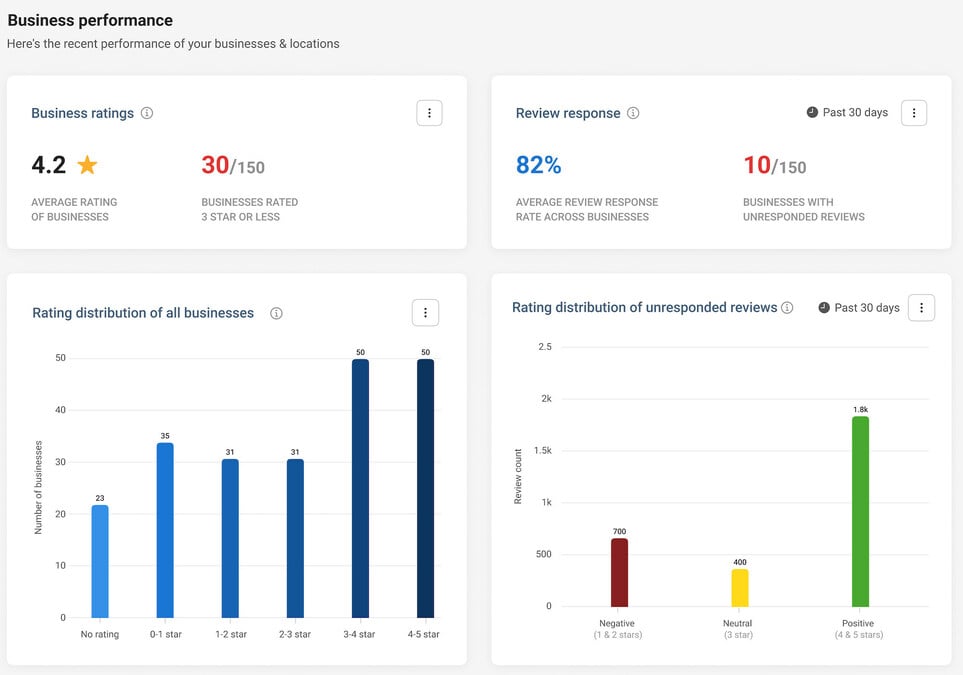
In April 2024, Birdeye introduced the Partner Command Center, a new analytics tool tailored for agency partners. This platform is designed to streamline operations and enhance service delivery by providing key analytics functionalities in one centralized location.
The Partner Command Center equips agencies with customizable dashboards, error alerts, churn reduction strategies, and upsell opportunities. These features enable agencies to monitor and optimize their performance efficiently, addressing potential issues promptly and capitalizing on growth opportunities through detailed insights.
The value of the Partner Command Center to users is clear. It empowers agencies with the tools needed to improve client retention and expand revenue streams. By integrating comprehensive analytics and operational tools, agencies can achieve better results, making the Partner Command Center an essential asset for enhancing their competitive edge.
Verdict: Hot! The value in becoming a Birdeye agency partner just skyrocketed.
Marketo Update Notes
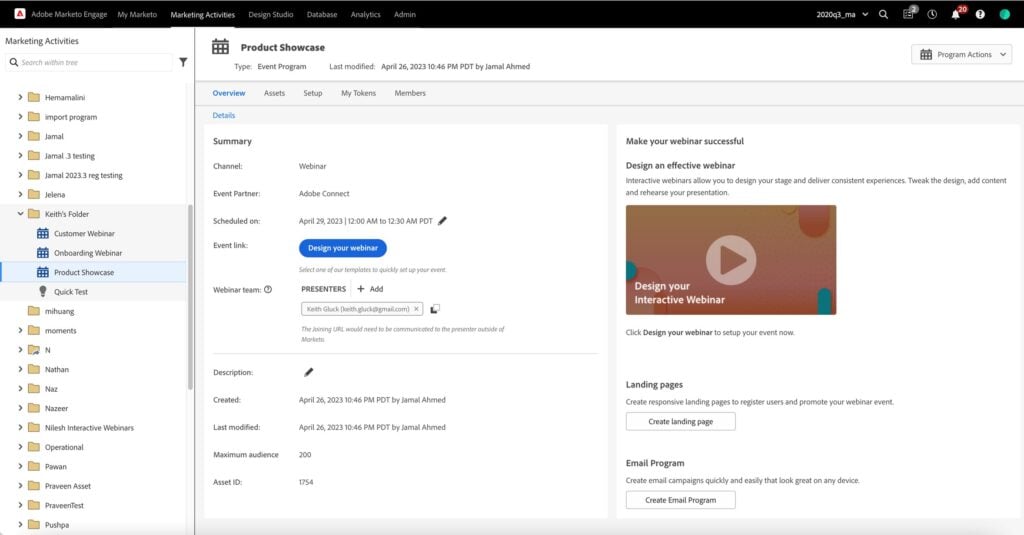
In April 2024, Adobe Marketo plans to release significant updates to its Interactive Webinars capabilities. These enhancements allow hosts and presenters to customize webinar titles and room names, and manually sync engagement data after events. The platform will also introduce templates for creating customized, branded webinar room layouts.
The ability to alter webinar titles and room settings enhances relevance for participants, while manual data syncing offers precise control over engagement analytics. The new templates ensure consistent, professional branding across webinar presentations.
The value of these enhancements lies in their ability to improve user experience and operational effectiveness during webinars. With greater customization options and better data handling, Marketo users can host more engaging and brand-cohesive webinars.
Verdict: Hot! Webinars are a great inbound marketing technique but it's hard to find the time/budget to manage them. Adobe Marketo users are now a step ahead!
March 2024: Marketing Software Updates
Here are some March update highlights.
ActiveCampaign Update Notes
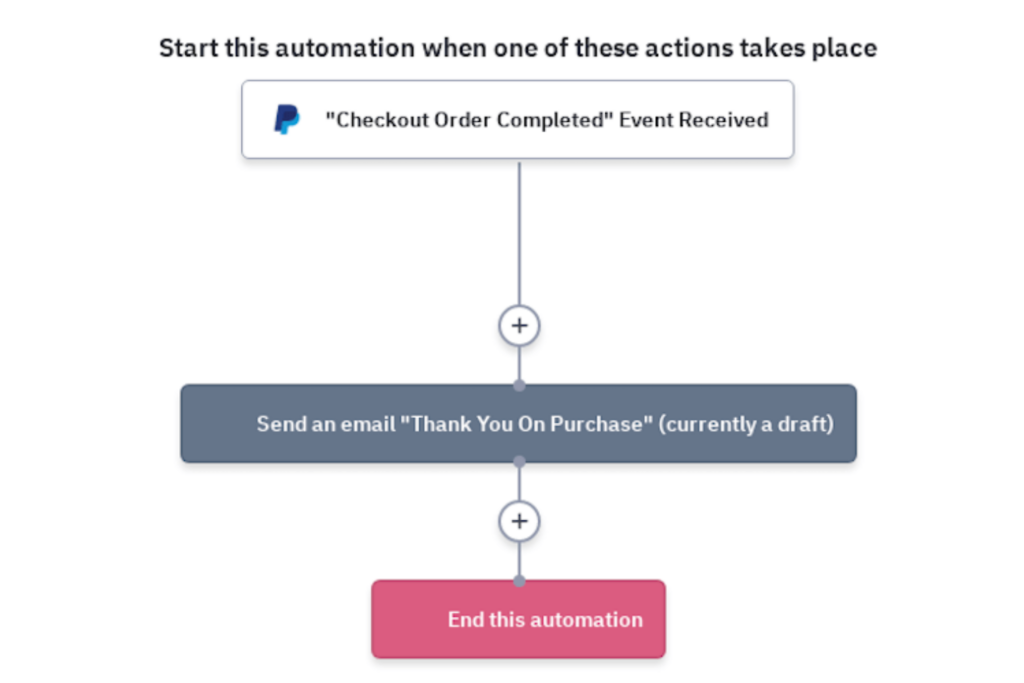
In March 2024, ActiveCampaign introduced a new feature that integrates recurring payments with WooCommerce and PayPal. This enhancement broadens the ecommerce capabilities of the platform, providing a streamlined solution for setting up and managing regular transactions.
This new functionality allows users to easily configure recurring payment options within their WooCommerce store, using PayPal as the payment processor. The integration facilitates automatic billing cycles and ensures seamless transaction processing, making it easier for businesses to offer subscriptions or other regular payment models to their customers.
The addition of recurring payments significantly enhances the value ActiveCampaign offers to ecommerce businesses. By enabling automatic and regular billing, companies can improve cash flow consistency and customer retention. This feature not only simplifies the payment process but also helps businesses stabilize revenue streams and build stronger, ongoing relationships with their customers.
Verdict: Not! This update is pretty niche, so the majority of active users probably won't be affected by it or even notice the change.
CreatioCRM Update Notes
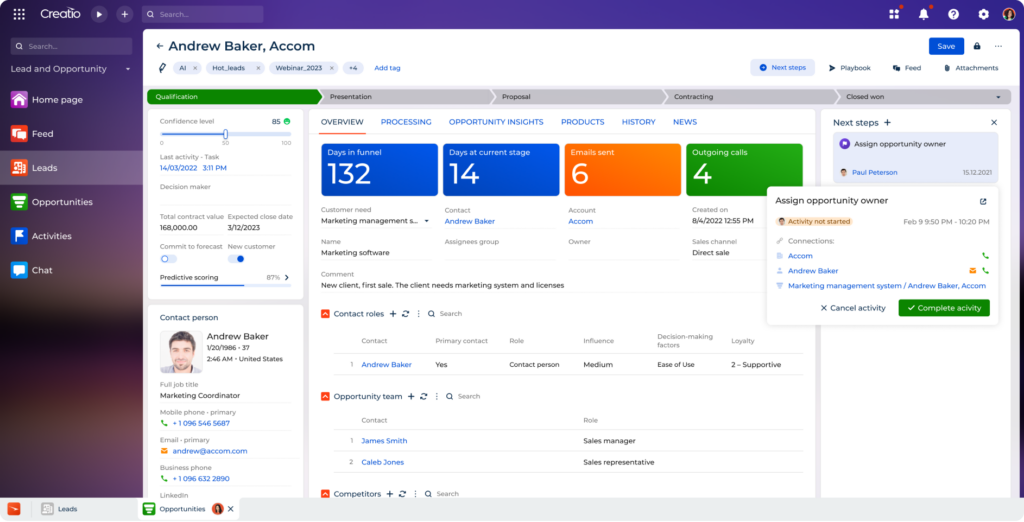
In March 2024, CRM Creatio introduced a significant enhancement to its platform with the launch of AI-driven analytics tools. These tools are engineered to harness the power of artificial intelligence to delve deeper into customer behavior and business operations.
The primary function of this update is to empower users with a more robust analytical toolset, enabling them to perform complex data analyses without the need for extensive technical expertise. The AI-driven tools analyze patterns and trends within the data, offering predictions and recommendations that help businesses anticipate customer needs.
The value of this update to users lies in its potential to significantly enhance decision-making processes. By providing deeper insights into customer behavior and business operations, CRM Creatio's AI tools help users make informed decisions that are predictive, rather than merely reactive.
Verdict: Hot! AI-driven reports are a must nowadays. It's great to see CRM Creatio go full tilt to empower users with the best predictive analytics.
Mailchimp Update Notes

Mailchimp has introduced a new AI Growth Assistant, a forward-thinking tool designed to enhance marketing campaigns through artificial intelligence. This feature is part of Mailchimp's ongoing efforts to incorporate advanced technologies into their platform, making sophisticated marketing tools more accessible to their users.
The AI Growth Assistant works by analyzing user data and previous campaign performance to offer tailored suggestions aimed at increasing engagement and efficiency. By leveraging AI, the tool can identify patterns and opportunities that may not be evident through traditional analysis, suggesting actionable improvements in real-time.
This update is highly valuable to users as it simplifies the process of campaign optimization. By automating the analysis and recommendation phases, Mailchimp users can focus more on creative and strategic aspects of marketing, rather than getting bogged down by data analysis.
Verdict: Hot! Newsletters are a key component of modern marketing but they take a lot of time. Having an AI outline to get you started is a great time-saver.
February 2024: Marketing Software Updates
Here are some February update highlights.
Salesforce Perdot Update Notes
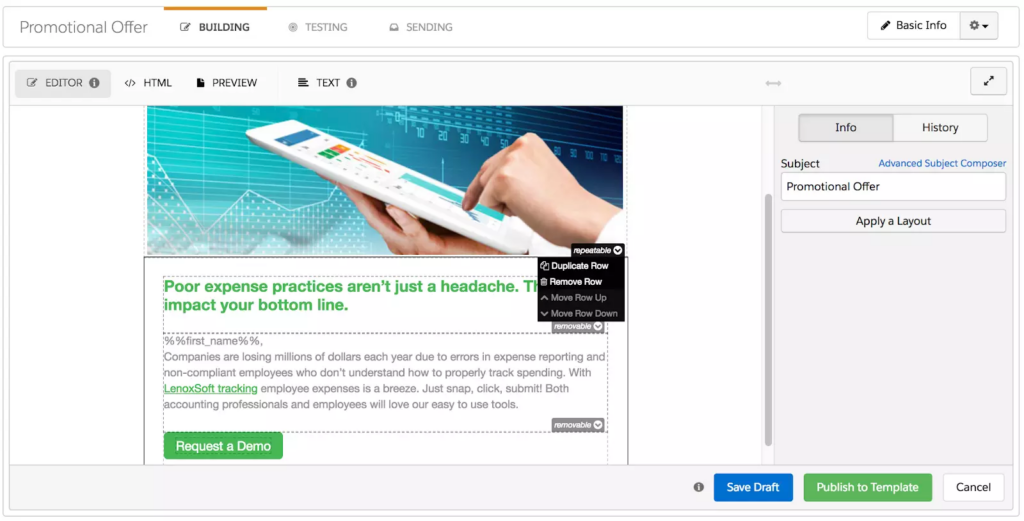
In February 2024, Salesforce Pardot will launch a new email builder. This tool offers a modular design, allowing users to switch between the current and a new, advanced editor. This flexibility enhances the email creation process.
The update brings a robust email builder that supports customizable modules, making it easier to align emails with campaign objectives. Users can choose between the straightforward existing editor or the enhanced capabilities of the new builder, enabling precise customization.
The upgrade provides significant benefits by allowing marketers to create more engaging, tailored emails. With editing options for all skill levels, it boosts the effectiveness of campaigns, enhances customer engagement, and drives better returns.
Verdict: Hot! I'm a big fan of making critical components of software easier to use. No brainer!
HubSpot Marketing Update Notes
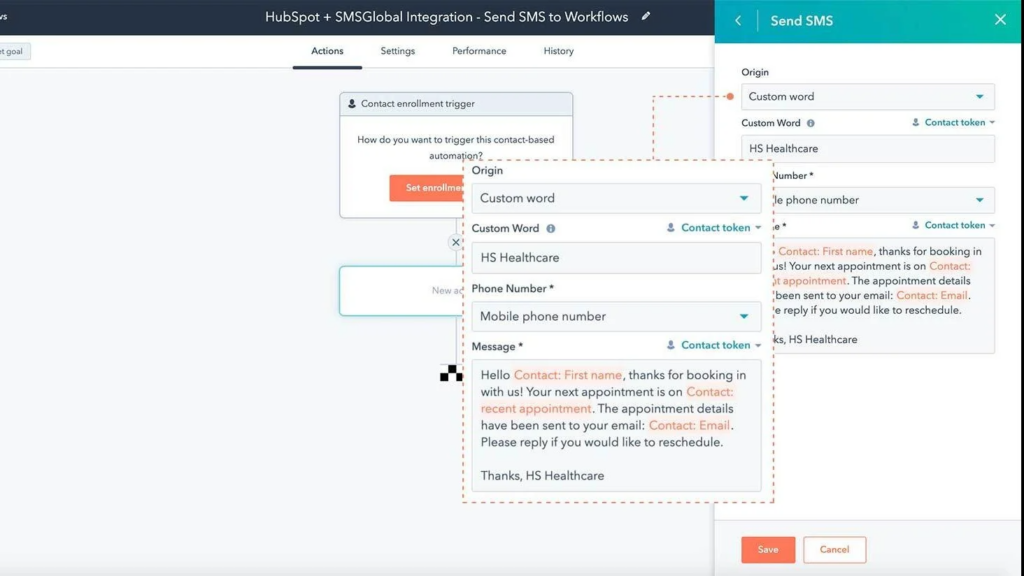
In February 2024, HubSpot Marketing enhanced its platform by integrating SMS capabilities through a partnership with Twilio. This update allows users to send timely and relevant SMS messages directly to customers without the need for a separate Twilio account.
The integration simplifies the process of setting up and deploying SMS campaigns by leveraging Twilio's robust messaging technology within the HubSpot environment. Users can now initiate SMS communications quickly, ensuring messages are both timely and aligned with customer interactions and needs.
The value of this update is significant for users seeking direct and immediate customer engagement. By incorporating SMS services, HubSpot enables more dynamic and responsive marketing strategies. This addition helps businesses increase customer touchpoints, improve communication efficiency, and enhance overall engagement metrics without complicating their existing workflows.
Verdict: Not! HubSpot is just borrowing Twilio tech and charging extra for it. You can probably find a better deal shopping around.
Campaigner Update Notes
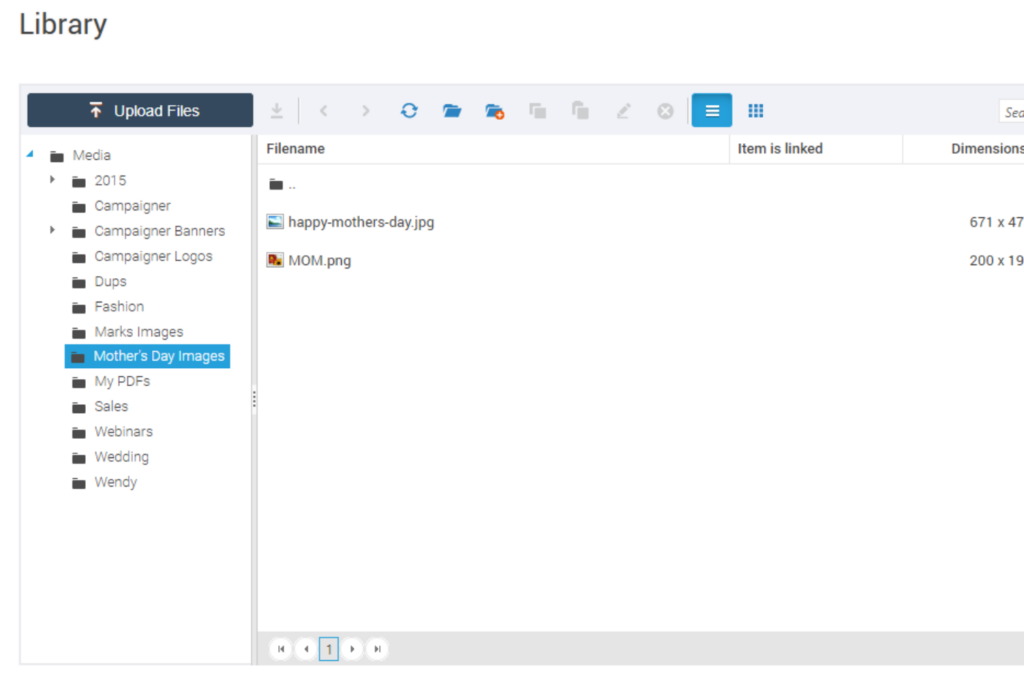
In the first quarter of 2024, Campaigner introduced significant enhancements to its platform, including a full email editor and a comprehensive media library. These new features streamline the creation and management of marketing materials directly within Campaigner, eliminating the need for third-party software.
The updated email editor supports HTML customization, allowing users to have full control over the design and layout of their email campaigns. Simultaneously, the new media library provides a centralized space where users can store, organize, and edit images and PDF files. This integration ensures that all marketing assets are easily accessible and editable in one place.
The enhancements bring substantial value to users by simplifying the marketing process. With advanced editing tools and a unified media library, users can enhance the visual appeal and effectiveness of their campaigns. These tools not only save time and resources but also empower marketers to execute more personalized and impactful email campaigns.
Verdict: Hot! A unified media library makes maintaining brand consistency across all channels much easier, including email blasts.
Google Analytics Update Notes
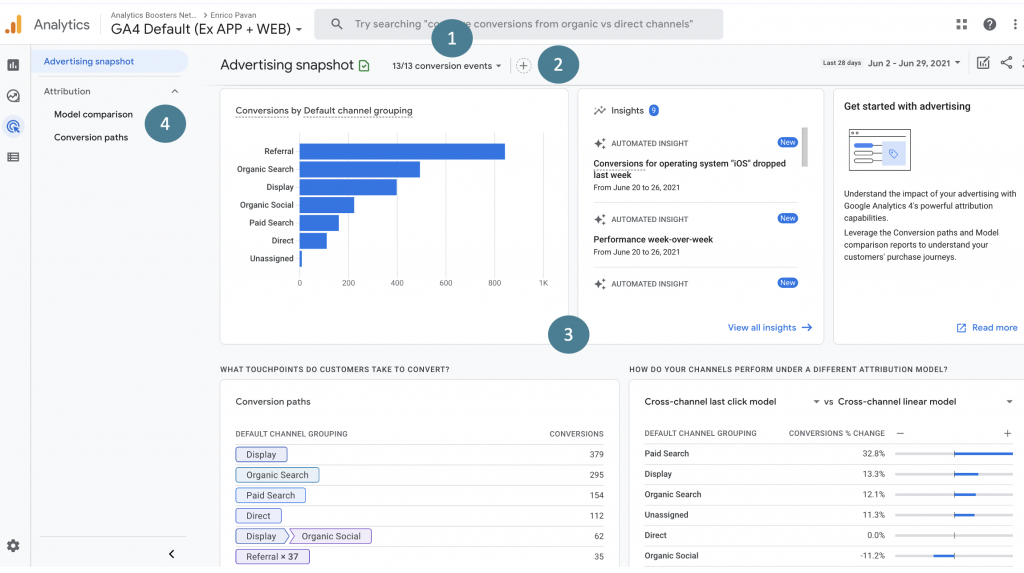
On February 22, 2024, Google Analytics 4 rolled out a significant update to its Advertising workspace. This enhancement introduced two distinct areas: one area is dedicated to marketers for tracking and analyzing their advertising campaigns, while the other focuses on gathering and interpreting behavioral insights.
The primary function of this update is to streamline the reporting process for users. By segmenting the workspace into two dedicated areas, it allows marketers to access specialized tools and reports tailored to either campaign management or behavioral analysis.
The update significantly benefits users by simplifying how they interact with complex data sets and improve their decision-making processes. For advertisers and publishers, this means quicker access to relevant data and a smoother workflow.
Verdict: Hot! These enhancements to G4A's Advertising workspace stand to make managing paid campaigns much more straightforward for marketers.
Freshworks Product Updates
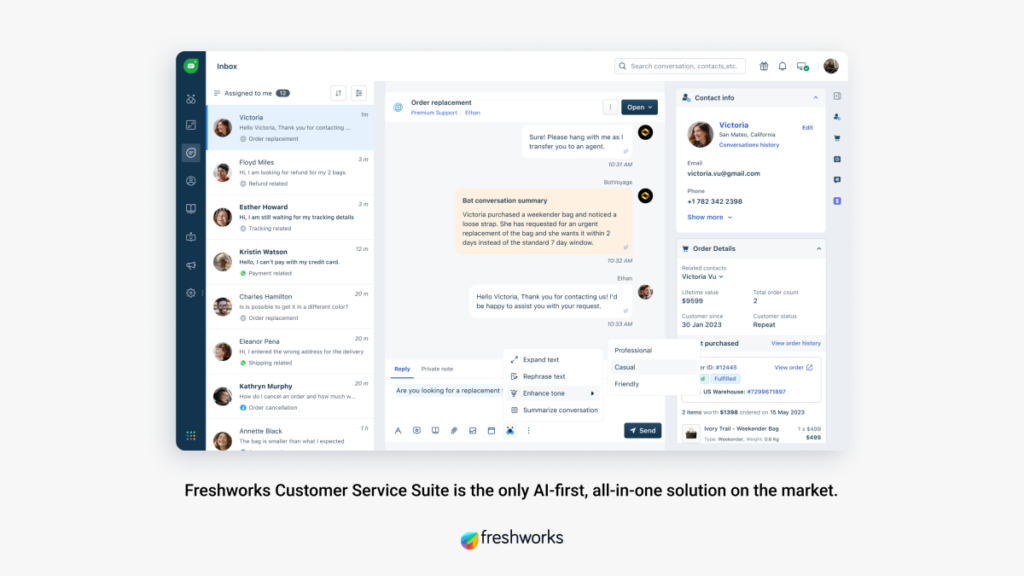
In February 2024, Freshworks launched the Freddy Copilot Add-on. This tool introduces AI features aimed at boosting agent productivity and enhancing response quality in support scenarios.
The add-on uses AI to suggest responses and automate tasks, freeing agents to focus on complex customer needs. It also sorts incoming requests to streamline workflow.
The update boosts efficiency in customer support, helping businesses improve response times and customer satisfaction, which is crucial for their success.
Verdict: Not! Freshworks has been AI-powered for a while now, so the "new" benefits may seem slim to existing users.
Frequently Asked Questions
Need more information about the best marketing software before making your pick? Here are the answers to a couple of questions you might have.
What are the types of marketing software?
There are different types of marketing software designed to either help with a specific marketing use case or a wide range of marketing use cases. Each type of marketing software; caters to different marketing activities and objectives. Five of the most popular use cases include:
- Customer Relationship Management (CRM) Software helps marketing teams engage ad manage their interactions with current and potential customers.
- Email Marketing Software helps email marketers to segment audiences, create, personalize, send and analyze email campaigns.
- Social Media Management Tools assist social media managers in managing, scheduling, and analyzing the performance of posts on platforms like Facebook, Twitter, Instagram, and LinkedIn.
- Content Management Systems (CMS) helps content marketers to create, manage, and optimizing digital content on websites, blogs, and various digital platforms.
- Marketing Automation Software helps marketing and sales teams to automate repetitive marketing tasks such as email marketing, social media posting, and ad campaigns.
What's the best free marketing software?
Yes, there are various free marketing software available that offer a range of functionalities to support different marketing activities. Some examples include Hubspot, Mailchimp, Google Analytics, and Buffer. You can also consider social platforms like Twitter, TikTok, Instagram, Facebook, and Pinterest as great free marketing tools.
While these free marketing software options have limitations compared to their paid counterparts, they can still provide significant value for individuals and small businesses with limited budgets or basic marketing needs.
Which is the easiest marketing software to learn?
Determining the easiest marketing software to learn depends on individual preferences, familiarity with technology, and the specific functionalities required. However, some marketing software platforms are known for their user-friendly interfaces and intuitive workflows.
Examples include Mailchimp, which offers a straightforward and easy-to-navigate interface for email marketing and automation, and Canva, a graphic design tool with a drag-and-drop editor and a wide range of pre-designed templates. Additionally, platforms like Hootsuite and Buffer simplify social media management with user-friendly dashboards and scheduling capabilities.
What's the best marketing software for enterprises?
Determining the best marketing software for enterprise-level organizations depends on various factors including specific business needs, industry, budget, and the scale of operations. However, several marketing software solutions are widely recognized for their robust features, scalability, and reliability, making them popular choices among large enterprises. Here are some top contenders:
- Adobe Experience Cloud: Adobe’s suite offers a comprehensive set of marketing tools, including analytics, advertising, and content management. Known for its advanced features, it’s particularly well-suited for enterprises that focus heavily on data-driven marketing and personalized customer experiences.
- Salesforce Marketing Cloud: This platform is renowned for its CRM capabilities, but it also offers a powerful marketing suite. It includes email marketing, social media tools, advertising, and customer journey mapping. Salesforce is ideal for enterprises looking for a seamless integration of marketing with sales and customer service.
- HubSpot Marketing Hub Enterprise: HubSpot is known for its user-friendly interface and comprehensive feature set, which includes content management, social media, SEO, and CRM tools. The Enterprise version offers advanced features like predictive lead scoring and custom event triggers.
- Oracle Marketing Cloud: Oracle offers a suite of marketing tools that include email marketing, lead management, and a data management platform. It’s a strong choice for enterprises needing a robust marketing automation platform that integrates with other Oracle products.
Can marketing software help in improving customer retention?
Yes, marketing software can significantly enhance customer retention by automating engagement processes, such as sending personalized emails, reminders, and special offers based on customer behavior and preferences. This ongoing engagement helps maintain customer interest and loyalty.
What metrics and KPIs can be tracked using marketing software?
Marketing software can track a variety of metrics and KPIs, including conversion rates, click-through rates, engagement rates, lead generation statistics, and overall ROI from marketing campaigns. These metrics help marketers assess the effectiveness of their strategies and make data-driven decisions.
What is the ROI of investing in marketing software?
The ROI of marketing software depends on several factors, including the efficiency of marketing operations, the reduction in labor costs, and the increase in campaign effectiveness. Typically, users see improvements in customer acquisition and retention rates, leading to higher sales and reduced marketing expenses over time.
What's the best marketing software?
The best marketing software will depend on your context. For a startup, you’ll probably be thinking about cost when deciding. You’ll also need to think about feature bloat – buying a solution that comes with features you don’t need. For an enterprise-level business, while cost is a consideration, you would be concerned with features, customer support, and reliability. For example, an enterprise business might consider investing in a software like Adobe Marketo due to the wide range of tools if offers while a startup would be looking at picking Mailchimp as it’s affordable and also designed to support a specific marketing workflow.
Additional Marketing Software Reviews
Marketing tends to require different platforms working in tandem. Here are some other software lists you might find useful:
- Marketing Calendar Software
- Marketing Collaboration Software
- Marketing Intelligence Software
- Marketing CRM Software
- Brand Management Software
- Affiliate Marketing Software
- Social Media Management Software
- Direct Mail Marketing Software
Conclusion
This comprehensive list has evaluated the capabilities, user-friendliness, and cost-effectiveness of the top marketing software contenders, equipping you with the insights to make an informed decision. Whether you're grappling with lead generation, email automation, analytics, or customer relationship management, the expertise distilled here aims to address those pain points with precision.
Marketing software trends change so rapidly, so be sure to sign up for The CMO newsletter. That way, you'll get insights delivered right to your inbox as the MarTech tide ebbs and flows.

